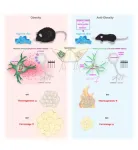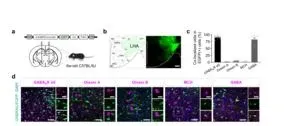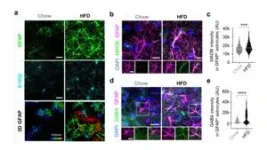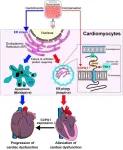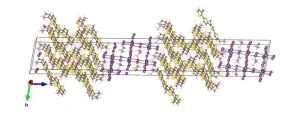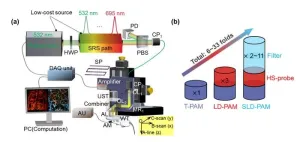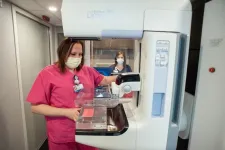A new breakthrough in obesity research allows you to lose fat while eating all you want
Researchers discover that astrocytes control a cluster of neurons in the brain that regulates energy expenditure
2023-08-31
(Press-News.org)
This is a significant development that brings hope to the one billion individuals with obesity worldwide. Researchers led by Director C. Justin LEE from the Center for Cognition and Sociality (CCS) within the Institute for Basic Science (IBS) have discovered new insights into the regulation of fat metabolism. The focus of their study lies within the star-shaped non-neuronal cells in the brain, known as 'astrocytes'. Furthermore, the group announced successful animal experiments using the newly developed drug 'KDS2010', which allowed the mice to successfully achieve weight loss without resorting to dietary restrictions.
The complex balance between food intake and energy expenditure is overseen by the hypothalamus in the brain. While it has been known that the neurons in the lateral hypothalamus are connected to fat tissue and are involved in fat metabolism, their exact role in fat metabolism regulation has remained a mystery. The researchers discovered a cluster of neurons in the hypothalamus that specifically express the receptor for the inhibitory neurotransmitter 'GABA (Gamma-Aminobutyric Acid)'. This cluster has been found to be associated with the α5 subunit of the GABAA receptor and was hence named the GABRA5 cluster.
In a diet-induced obese mouse model, the researchers observed significant slowing in the pacemaker firing of the GABRA5 neurons. Researchers continued with the study by attempting to inhibit the activity of these GABRA5 neurons using chemogenetic methods. This in turn caused a reduction in heat production (energy consumption) in the brown fat tissue, leading to fat accumulation and weight gain. On the other hand, when the GABRA5 neurons in the hypothalamus were activated, the mice were able to achieve a successful weight reduction. This suggests that the GABRA5 neurons may act as a switch for weight regulation.
In a new surprising and unexpected turn of events, the research team discovered that the astrocytes in the lateral hypothalamus regulate the activity of the GABRA5 neurons. The numbers and sizes of the reactive astrocytes are increased, and they begin to overexpress the MAO-B enzyme (Monoamine Oxidase B). This enzyme plays a crucial role in the metabolism of neurotransmitters in the nervous system and is more predominantly expressed in reactive astrocytes. This ends up in the production of a large amount of tonic GABA (Gamma-Aminobutyric Acid), which inhibits the surrounding GABRA5 neurons.
It was also discovered that suppressing the expression of the MAO-B gene in reactive astrocytes can decrease GABA secretion, thereby reversing the undesirable inhibition of the GABRA5 neurons. Using this approach the researchers were able to increase the heat production in the fat tissue of the obese mice, which allowed them to achieve weight loss even while consuming a high-calorie diet. This experimentally proves that the MAO-B enzyme in reactive astrocytes can be an effective target for obesity treatment without compromising appetite.
Furthermore, a selective and reversible MAO-B inhibitor, 'KDS2010', which was transferred to a biotech company Neurobiogen in 2019 and is currently undergoing Phase 1 clinical trials, was tested on an obese mouse model. The new drugs yielded remarkable results, demonstrating a substantial reduction in fat accumulation and weight without any impacts on the amount of food intake.
Postdoctoral researcher SA Moonsun said, “Previous obesity treatments targeting the hypothalamus mainly focused on neuronal mechanisms related to appetite regulation.” She added, “To overcome this, we focused on the non-neuronal 'astrocytes' and identified that reactive astrocytes are the cause of obesity.”
Center Director C. Justin LEE also said, “Given that obesity has been designated by the World Health Organization (WHO) as the '21st-century emerging infectious disease,’ we look to KDS2010 as a potential next-generation obesity treatment that can effectively combat obesity without suppressing appetite.”
The research results were in 'Nature Metabolism', a globally renowned academic journal in the field of metabolism with an Impact Factor of 20.8.
END
ELSE PRESS RELEASES FROM THIS DATE:
2023-08-31
Cancer is most treatable in its early stages, so finding innovative and non-invasive methods to diagnose cancer early on is crucial for fighting the disease. Liquid biopsies, which require just a simple blood draw, are an emerging technology for non-invasively testing for cancer using DNA or RNA sequencing of a patient’s blood.
Assistant Professor of Biomolecular Engineering Daniel Kim and his lab are developing more accurate and powerful liquid biopsy technologies that take advantage of signals from RNA “dark matter,” an understudied ...
2023-08-31
Thursday, 31 August 2023: The largest genetic study of its kind, coordinated by the International League Against Epilepsy, including scientists from FutureNeuro at RCSI University of Medicine and Health Sciences, has discovered specific changes in our DNA that increase the risk of developing epilepsy.
The research, published today in Nature Genetics, greatly advances our knowledge of why epilepsy develops and may inform the development of new treatments for the condition.
Epilepsy, a common brain disorder of which there are many different types, is known to have genetic component and to sometimes run in families. Here, researchers compared the DNA from diverse groups of almost ...
2023-08-31
Researchers from Tokyo Medical and Dental University(TMDU) determine how cardiomyocytes protect themselves against anti-cancer medication
Tokyo, Japan – A cell contains many specialized subunits, called organelles, that carry out important tasks such as energy generation, protein synthesis, and calcium outflux. But what happens when something goes wrong with one of the organelles?
In a study recently published in the Journal of the American College of Cardiology: CardioOncology, researchers from Tokyo Medical and Dental University(TMDU) have ...
2023-08-31
By controlling the arrangement of multiple inorganic and organic layers within crystals using a novel technique, researchers at Duke University and Purdue University have shown they can control the energy levels of electrons and holes (positive charge carriers) within a class of materials called perovskites. This tuning influences the materials’ optoelectronic properties and their ability to emit light of specific energies, demonstrated by their ability to function as a source of lasers.
Appearing online August 31 in the journal Nature Chemistry, the research is the result of a close collaboration between several ...
2023-08-31
August 31, 2023 - New research published today in Human Genetics and Genomics Advances reveals the difference between ‘what we say’ and ‘what people hear’ when engaging underrepresented communities around genomics and healthcare.
Genomics datasets, which underpin the ability to interpret all genetic tests, are known to consist of DNA from predominately white, Northern European populations. As genomics becomes an increasingly important part of everyday healthcare*, barriers to diverse participation must be overcome so that everyone can benefit from genomic medicine, not just the privileged few.
The research ...
2023-08-31
“We find that people who are in better shape fill fewer prescriptions for anxiety and depression medications,” says Linda Ernstsen, the senior author of the article and an associate professor from the Department of Public Health and Nursing at the Norwegian University of Science and Technology (NTNU).
The research group based its work on the Trøndelag Health Study (HUNT). Since 1984, 250,000 Trøndelag residents have voluntarily contributed their health data to this comprehensive ...
2023-08-31
A soft ball that ‘personifies’ breath, expanding and contracting in synchronicity with a person’s inhalations and exhalations, has been invented by a PhD student at the University of Bath in the UK. The ball is designed to support mental health, giving users a tangible representation of their breath to keep them focused and to help them regulate their emotions.
Alexz Farrall, the student in the Department of Computer Science who invented the device, said: "By giving breath physical form, the ball enhances self-awareness and engagement, fostering positive mental health outcomes."
Generally, ...
2023-08-31
INDIANAPOLIS – Mentorship has existed throughout history. Socrates mentored Plato, who, in turn, mentored Aristotle. Humphry Davy, the chemist who was the first to isolate potassium, sodium and at least five other elements, mentored Michael Faraday, inventor of the world’s first electric generator. Sigmund Freud mentored Carl Jung. Science teacher Elizabeth Mommaerts mentored Sally Ride. Maya Angelou mentored Oprah Winfrey. The list of knowledge bearers and knowledge seekers who have connected meaningfully goes ...
2023-08-31
Optical-resolution photoacoustic microscopy is an up-and-coming biomedical imaging technique for studying a broad range of diseases, such as cancer, diabetes and stroke. But its insufficient sensitivity has been a longstanding obstacle for its wider application. Recently, a research team from City University of Hong Kong (CityU) developed a multi-spectral, super-low-dose photoacoustic microscopy system with a significant improvement in the system sensitivity limit, enabling new biomedical applications and clinical translation in the future.
Photoacoustic ...
2023-08-31
DETROIT – All five of Henry Ford Health’s acute care hospitals have earned a full three-year reaccreditation by the National Accreditation Program for Breast Centers (NAPBC), a quality program administered by the American College of Surgeons. With Henry Ford Hospital Detroit, Henry Ford Jackson Hospital, Henry Ford Macomb Hospital, Henry Ford West Bloomfield Hospital and Henry Ford Wyandotte Hospital earning full reaccreditation, Henry Ford has the highest number of Commission on Cancer and NAPBC-accredited hospitals of any health system in Michigan.
“The NAPBC accreditation is reflective of our unwavering commitment ...
LAST 30 PRESS RELEASES:
[Press-News.org] A new breakthrough in obesity research allows you to lose fat while eating all you want
Researchers discover that astrocytes control a cluster of neurons in the brain that regulates energy expenditure
